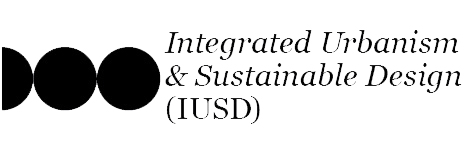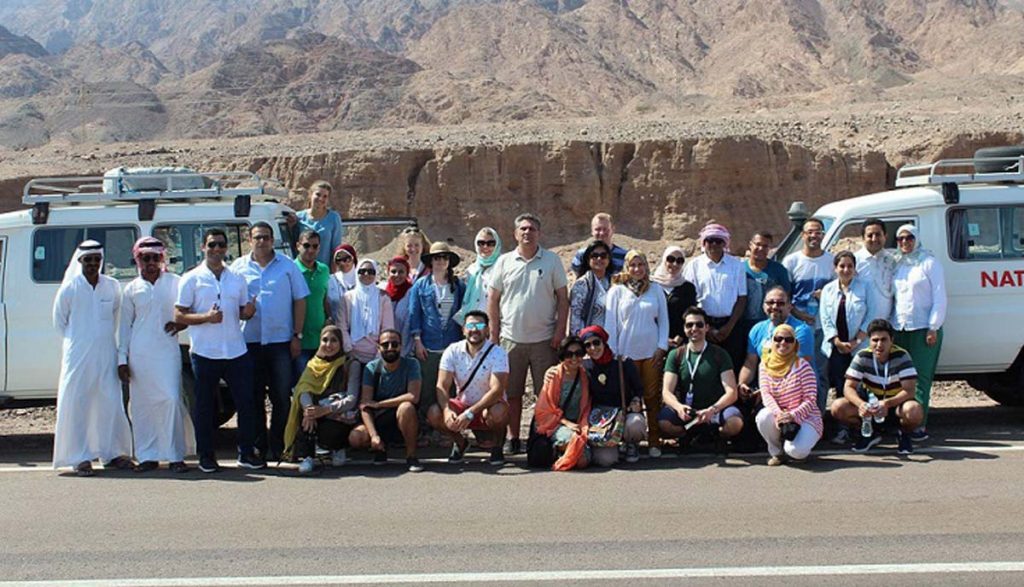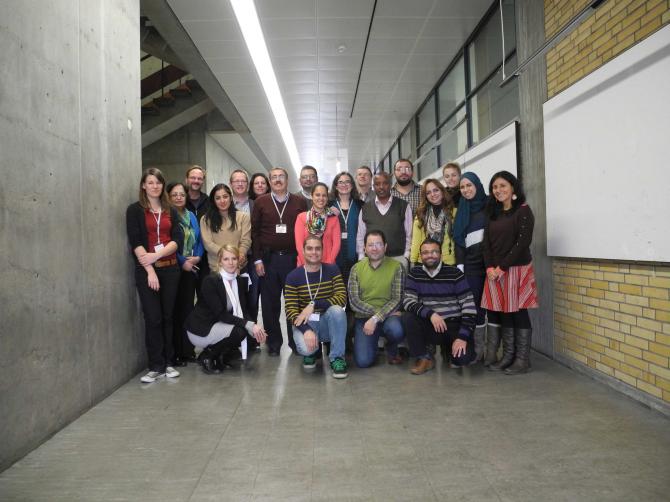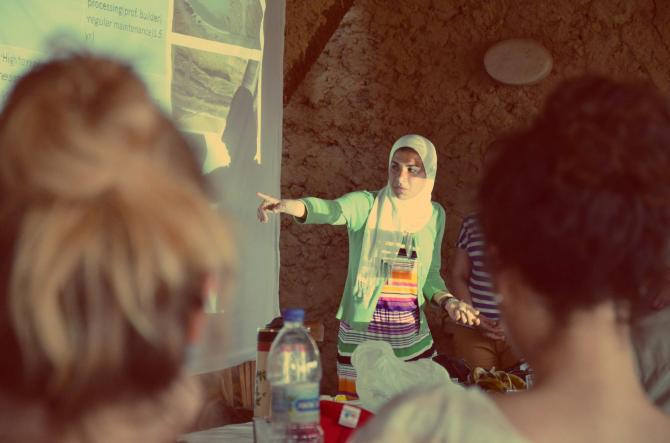-
The International workshop on Cultural heritage and Livelihood of Bedouins of South Sinai
By IUSD Lab Cairo and Lincoln School of Architecture, “21-28 October 2017”
Funded by Newton-Mosharafa researchers links fund
In collaboration with the Lincoln School of Architecture and the Built Environment, University of Lincoln, UK; IUSD Lab organised an International workshop on cultural heritage and livelihood of Bedouins of South Sinai under the theme of “Investigating sustainability approaches of local resilient community development in Nuweiba, South Sinai” between 21-28th of October 2017. The workshop was funded by the Newton-Mosharafa researchers links fund. For a week, 40 participants from both Egypt and the UK were engaged in an interdisciplinary dialogue with the local community of Nuweiba towards developing a framework for community resilience. Throughout the workshop, participants conducted field visits and community focus groups to investigate potentials of the community resilience and share ideas for social, cultural and environmental sustainability practice and policies. During the workshop, IUSD intake VI also had the opportunity to share knowledge and experience with the workshop participants.
-
Impulse workshop on the topic of Green Infrastructure considering Integrated Urban Water Management in Stuttgart
By IUSD Lab Stuttgart and IUSD Lab Cairo, “10-12 December 2014”
Funded by DAADIn a two-day workshop the IUSD Lab defines research fields along and around the topic of water sensitive green infrastructure, taking into account environmental, socio-economic and technological challenges in order to prepare coordinated proposal activities. During the workshop upcoming funding options (with and without focus on the MENA region) were discussed with the aim to initiate consortia covering the various aspects relevant for the topic.
-
Towards a Sustainable Development of the Coastal zones in Tunisia
Case Study of Lella Hadhria, Island of Djerba “22nd Sept – 3rd OCt 2014″
The Island of Djerba is a specific example of a human community adapting to its environment and has been recognized by the UNESCO as “Patrimony of Humanity“just recently. Since the 1960’s the island has been witnessing intensive transformation due to the mass tourism development. The rapid urbanization of the littoral strip with hotel complexes, golf courses and marinas threatens the vernacular assets with a risk of loss of the island’s identity. Meanwhile, the island of Djerba is in need of development, but a development in a reasoned way taking into account its historic, cultural and ecological specificities.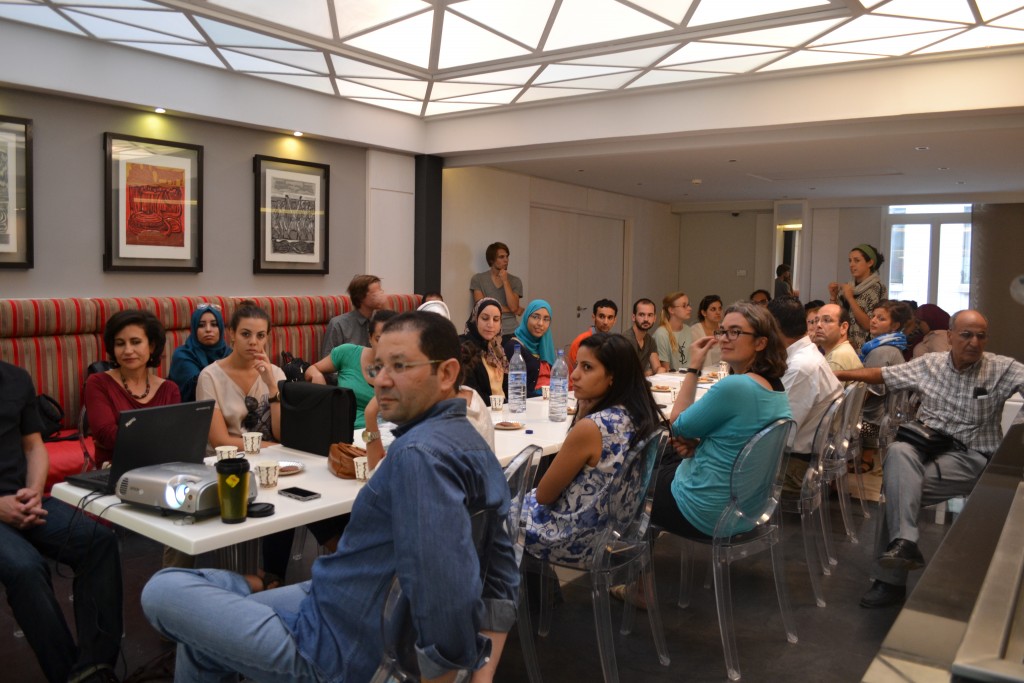
A previous explorative Workshop from students of the Ain Shams University (December 2013) served as a preview into Djerba´s social and urban dynamics, full of contrasts and paradigms. Building up on the gained knowledge, the University of Stuttgart and the University of Carthage joined their egyptian partner for the sequel, hierby exhibited Summer School.
The site of Lella Hadhria, a pristine lagoon ecosystem and home to a rich fauna and flora, is threatened by development plans for a hotel complex. Through an interdisciplinary approach, bringing together architecture, urban planning and landscape architecture professionals and students, the summer school contributed to a spirit of interdisciplinary cooperation.
A final exhibition to the Tunisian public aimed to provide a wide range of scenarios for the future development of Lella Hadhria, based on a previous analytical research, experience and personal observations within a limited timeframe of this Summer School.
-
Fact-Finding Mission in Tunis “24-26 March 2014”
Collaboration between both ASU & USTUTT IUSD-Labs in cooperation with ISTEUB (Institut Supérieur des Technologies de l’Environnement, de l’Urbanisme et du Bâtiment). In this mission IUSD-Lab continued on the knowledge and network built during one of the Course taught by Ain Shams University in December 2013 in the unique island of Djerba – Tunisia. The island has a unique character in its environmental, urban and socio-cultural settings. ASU-Labs then decided to continue with further research activities and for that the fact finding mission was planned to validate some research lines and contacts professionals, civil society, authorities and stakeholders related to the identified case study. The IUSD team with local partner Dr. Imene Zaafrane applied for funding for a workshop involving German, Egyptian and Tunisian Students to be conducted on the island. The workshop was approved and is planned for the period from 22 Sep. to 3rd of October 2014.
-
Water Sensitive Urban Design in New Cairo Workshop
IUSD Lab – Ain Shams University, Cairo – Egypt “03.04.2014 to 07.04.2014”
The main objectives of this event were to open a new research field, understand the current situation of landscape in Cairo, identify different stakeholders connected to water sensitive urban design, know different contributions of governmental institution, NGOs and public sector towards the topic and discover the needed points for further research linked to water sensitive landscape. The workshop involved visits to several governmental and institutional meetings to get an understanding of how these institutions act toward water consumption, irrigation and agriculture systems, and to get to know their previous studies, current interests and future proposed projects. Numerous field visits and tour around greater Cairo region and its fringes were undertaken by the study group, to acquire information on the landscape patterns of different areas in accordance with their contextual perspective, which the study group later analyzed and classified its results.
-
Live Projects: Laboratories for Change? Towards sustainable teaching methodologies in applied urban settings
IUSD Lab – Stuttgart University, Stuttgart – Germany “12.12.2013 – 13.12.2013”
Funded by: DAAD Transformation Partnership, Foreign Office of Germany
‘Live Projects: Laboratories for Change?’ addressed a variety of questions in its sessions including but not limiting to the teaching and learning methodologies within the academic programs and its pedagogy, the long-term sustainability of Live Projects, and their impact on local communities and the impact of regional and social differences across different contexts. Together with several guests they contributed to the wider debates regarding professional practice as well as sharpening teaching methodologies in both university contexts and beyond, which will benefit the next generations of students. The focus on Live Projects is driven by the belief that students who become involved with well-organized and carefully framed socially engaged projects during their studies will continue to pursue socially responsible approaches in their professional lives. These approaches are needed in the German, Egyptian and Tunisian context, even though the reasons are different.
-
Towards a Neo-Vernacular Architecture: International Spring School Siwa 2013
By IUSD Lab Cairo
The spring school aimed to find possible ways to deal with the needs and demands of the people and to develop building practices and design solutions according to them.
Summer\Winter schools & Workshops
-
The International workshop on Cultural heritage and Livelihood of Bedouins of South Sinai
By IUSD Lab Cairo and Lincoln School of Architecture, “21-28 October 2017”
Funded by Newton-Mosharafa researchers links fund
In collaboration with the Lincoln School of Architecture and the Built Environment, University of Lincoln, UK; IUSD Lab organised an International workshop on cultural heritage and livelihood of Bedouins of South Sinai under the theme of “Investigating sustainability approaches of local resilient community development in Nuweiba, South Sinai” between 21-28th of October 2017. The workshop was funded by the Newton-Mosharafa researchers links fund. For a week, 40 participants from both Egypt and the UK were engaged in an interdisciplinary dialogue with the local community of Nuweiba towards developing a framework for community resilience. Throughout the workshop, participants conducted field visits and community focus groups to investigate potentials of the community resilience and share ideas for social, cultural and environmental sustainability practice and policies. During the workshop, IUSD intake VI also had the opportunity to share knowledge and experience with the workshop participants.
-
Impulse workshop on the topic of Green Infrastructure considering Integrated Urban Water Management in Stuttgart
By IUSD Lab Stuttgart and IUSD Lab Cairo, “10-12 December 2014”
Funded by DAADIn a two-day workshop the IUSD Lab defines research fields along and around the topic of water sensitive green infrastructure, taking into account environmental, socio-economic and technological challenges in order to prepare coordinated proposal activities. During the workshop upcoming funding options (with and without focus on the MENA region) were discussed with the aim to initiate consortia covering the various aspects relevant for the topic.
-
Towards a Sustainable Development of the Coastal zones in Tunisia
Case Study of Lella Hadhria, Island of Djerba “22nd Sept – 3rd OCt 2014″
The Island of Djerba is a specific example of a human community adapting to its environment and has been recognized by the UNESCO as “Patrimony of Humanity“just recently. Since the 1960’s the island has been witnessing intensive transformation due to the mass tourism development. The rapid urbanization of the littoral strip with hotel complexes, golf courses and marinas threatens the vernacular assets with a risk of loss of the island’s identity. Meanwhile, the island of Djerba is in need of development, but a development in a reasoned way taking into account its historic, cultural and ecological specificities.
A previous explorative Workshop from students of the Ain Shams University (December 2013) served as a preview into Djerba´s social and urban dynamics, full of contrasts and paradigms. Building up on the gained knowledge, the University of Stuttgart and the University of Carthage joined their egyptian partner for the sequel, hierby exhibited Summer School.
The site of Lella Hadhria, a pristine lagoon ecosystem and home to a rich fauna and flora, is threatened by development plans for a hotel complex. Through an interdisciplinary approach, bringing together architecture, urban planning and landscape architecture professionals and students, the summer school contributed to a spirit of interdisciplinary cooperation.
A final exhibition to the Tunisian public aimed to provide a wide range of scenarios for the future development of Lella Hadhria, based on a previous analytical research, experience and personal observations within a limited timeframe of this Summer School.
-
Fact-Finding Mission in Tunis “24-26 March 2014”
Collaboration between both ASU & USTUTT IUSD-Labs in cooperation with ISTEUB (Institut Supérieur des Technologies de l’Environnement, de l’Urbanisme et du Bâtiment). In this mission IUSD-Lab continued on the knowledge and network built during one of the Course taught by Ain Shams University in December 2013 in the unique island of Djerba – Tunisia. The island has a unique character in its environmental, urban and socio-cultural settings. ASU-Labs then decided to continue with further research activities and for that the fact finding mission was planned to validate some research lines and contacts professionals, civil society, authorities and stakeholders related to the identified case study. The IUSD team with local partner Dr. Imene Zaafrane applied for funding for a workshop involving German, Egyptian and Tunisian Students to be conducted on the island. The workshop was approved and is planned for the period from 22 Sep. to 3rd of October 2014.
-
Water Sensitive Urban Design in New Cairo Workshop
IUSD Lab – Ain Shams University, Cairo – Egypt “03.04.2014 to 07.04.2014”
The main objectives of this event were to open a new research field, understand the current situation of landscape in Cairo, identify different stakeholders connected to water sensitive urban design, know different contributions of governmental institution, NGOs and public sector towards the topic and discover the needed points for further research linked to water sensitive landscape. The workshop involved visits to several governmental and institutional meetings to get an understanding of how these institutions act toward water consumption, irrigation and agriculture systems, and to get to know their previous studies, current interests and future proposed projects. Numerous field visits and tour around greater Cairo region and its fringes were undertaken by the study group, to acquire information on the landscape patterns of different areas in accordance with their contextual perspective, which the study group later analyzed and classified its results.
-
Live Projects: Laboratories for Change? Towards sustainable teaching methodologies in applied urban settings
IUSD Lab – Stuttgart University, Stuttgart – Germany “12.12.2013 – 13.12.2013”
Funded by: DAAD Transformation Partnership, Foreign Office of Germany
‘Live Projects: Laboratories for Change?’ addressed a variety of questions in its sessions including but not limiting to the teaching and learning methodologies within the academic programs and its pedagogy, the long-term sustainability of Live Projects, and their impact on local communities and the impact of regional and social differences across different contexts. Together with several guests they contributed to the wider debates regarding professional practice as well as sharpening teaching methodologies in both university contexts and beyond, which will benefit the next generations of students. The focus on Live Projects is driven by the belief that students who become involved with well-organized and carefully framed socially engaged projects during their studies will continue to pursue socially responsible approaches in their professional lives. These approaches are needed in the German, Egyptian and Tunisian context, even though the reasons are different.
-
Towards a Neo-Vernacular Architecture: International Spring School Siwa 2013
By IUSD Lab Cairo
The spring school aimed to find possible ways to deal with the needs and demands of the people and to develop building practices and design solutions according to them.
